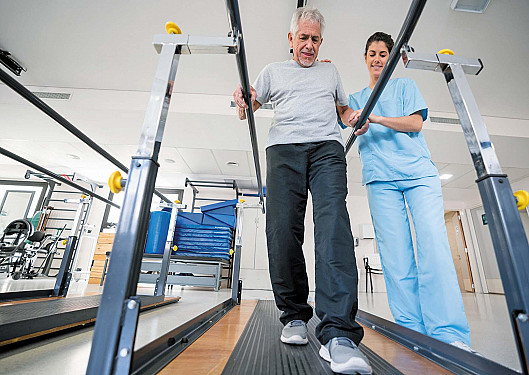Should you track your atrial fibrillation triggers?
Trying to pinpoint what sets off episodes of afib may be more trouble than it's worth. But alcohol appears to be a common culprit.

The hallmark sign of atrial fibrillation — a chaotic, racing heartbeat—often comes and goes. Episodes may last anywhere from seconds to hours or even days before the heart rate spontaneously returns to normal. Some people with this form of atrial fibrillation — known as paroxysmal or intermittent afib — don't even realize they have the disorder. But others experience a host of unpleasant symptoms, including breathlessness, dizziness, anxiety, weakness, fainting, confusion, and fatigue.
People with afib often wonder whether certain habits — such as drinking coffee or not getting sufficient sleep — might trigger their episodes. That curiosity inspired a collaborative clinical trial between researchers and patients to see whether pinpointing individual, personalized triggers was possible and potentially helpful (see "Alcohol — not caffeine — fingered as common afib trigger").
Some people are exquisitely sensitive to caffeine, but most are not, says Dr. Zimetbaum. "I tell my patients that it's fine to have small amounts of caffeine because the link between caffeine and afib is quite weak," he says. As for alcohol, binge drinking (consuming large amounts of alcohol in a short time) is a well-known afib trigger. But evidence increasingly suggests that smaller amounts of alcohol, even just one drink, may also raise a person's risk, and some people may be more susceptible than others.
Alcohol — not caffeine — fingered as common afib triggerThe I-STOP-Afib trial included 446 people with paroxysmal afib who were given a smartphone-linked device to use when they thought they were experiencing afib. The device detects afib by recording the heart's electrical activity via two fingers placed on a sensor. Half the participants simply tracked their afib episodes over a six-week period. The other half tested whether self-selected triggers might be causing their irregular heartbeats. Each person chose from a list of possible triggers, including caffeine, alcohol, reduced sleep, exercise, lying on the left side, dehydration, large meals, and cold food or drink. (They could also select their own suspected triggers; stress was the most common of these.) Next, they exposed themselves to the potential trigger during three separate weeks and avoided the trigger during three other weeks, alternating weekly. After six weeks, they could review their results to see which (if any) triggers increased their afib episodes. Then, over the next four weeks, they made lifestyle changes to avoid that trigger. During that time, the trigger-tracking group had 40% fewer episodes of afib compared with the monitoring-only group's final four weeks. Most of this difference was driven by people who selected alcohol, dehydration, or exercise as their triggers. In fact, alcohol was the only trigger consistently linked to more bouts of afib. And while people were most likely to choose caffeine as a potential trigger, the findings didn't support that suspicion. Researchers also found no evidence that knowing one's triggers and heading off bouts of afib could improve a person's quality of life. The study was published Nov. 14, 2021, in JAMA Cardiology. |
Fruitless and frustrating?
Much of the media coverage of this study quoted doctors who suggested that people with afib experiment on themselves to identify their afib triggers. But that's not necessarily a good idea.
"It's mostly an exercise in frustration," says Dr. Peter Zimetbaum, professor of cardiovascular medicine at Harvard Medical School and a specialist in heart rhythm disorders. When people try to identify their triggers, they spend a lot of time being hypervigilant about everything they do. More often than not, they can't find any correlation between their habits and when they experience afib, he explains. That level of vigilance often ends up increasing their stress levels. If they do identify potential triggers, they may find that avoiding triggers doesn't always help. That perceived lack of control can also heighten stress levels.
Routine disruptions?
However, people may recognize certain patterns to their afib episodes. Some notice that disruptions to their normal routine are likely to trigger a bout of afib — for example, exhaustion due to jet lag or indigestion after eating a rich, heavy meal, says Dr. Zimetbaum. These problems perturb the body's autonomic nervous system, the network of nerves that control "automatic" functions, including your heart rate, breathing, and digestion.
But when it comes to common habits such as drinking coffee or alcohol, it's hard to disentangle their effects from the myriad other factors intertwined with those habits, Dr. Zimetbaum says. These include environmental elements (the time of day or day of the week) or behavioral reasons (a desire to either wake up or relax).
Image: © Alex Potemkin/Getty Images
About the Author

Julie Corliss, Executive Editor, Harvard Heart Letter
Disclaimer:
As a service to our readers, Harvard Health Publishing provides access to our library of archived content. Please note the date of last review or update on all articles.
No content on this site, regardless of date, should ever be used as a substitute for direct medical advice from your doctor or other qualified clinician.
















